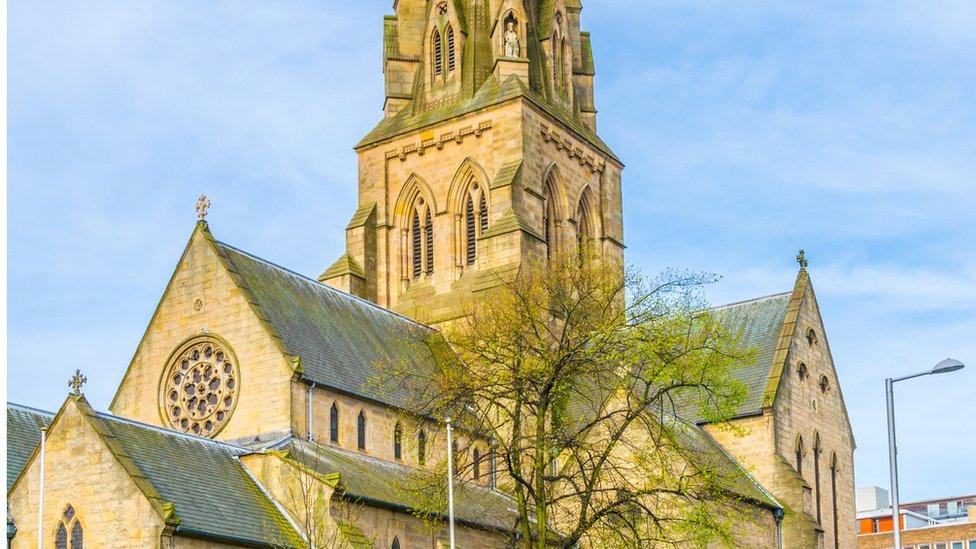Cathedral restoration work prepares for next phase
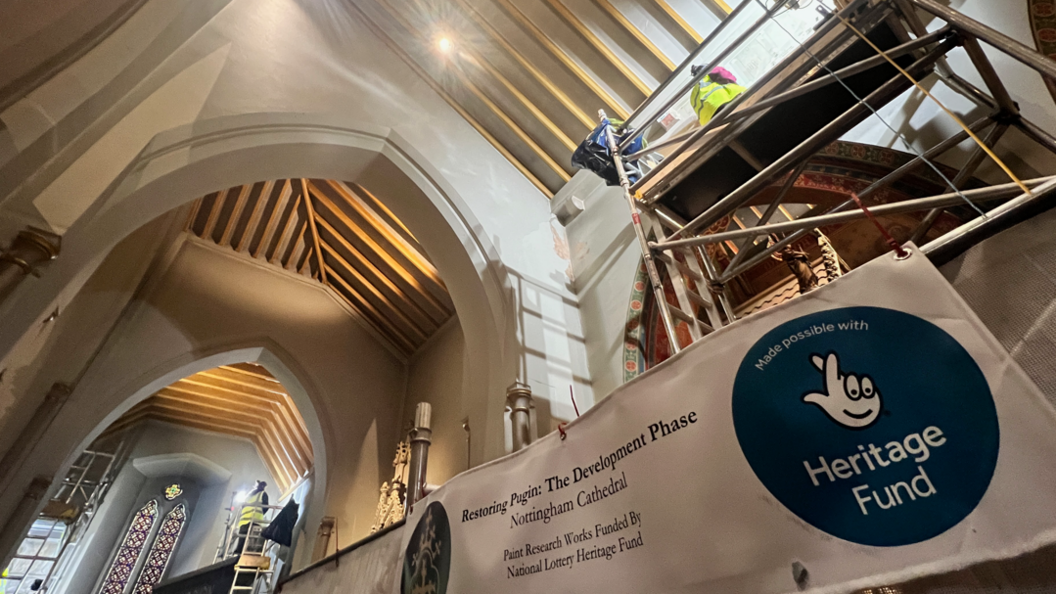
The first 'development' phase of work has taken six months to complete
- Published
A project to restore elaborate Victorian artwork at Nottingham Cathedral - which was painted over more half a century ago - is entering its next phase.
Colourful stencilling was used inside the Roman Catholic place of worship when it was built in the 1840s.
It was designed by architect Augustus Pugin, known for several major projects including the interior of the Houses of Parliament.
Nottingham Cathedral officials are now applying for more than £500,000 of lottery money to finish the project.
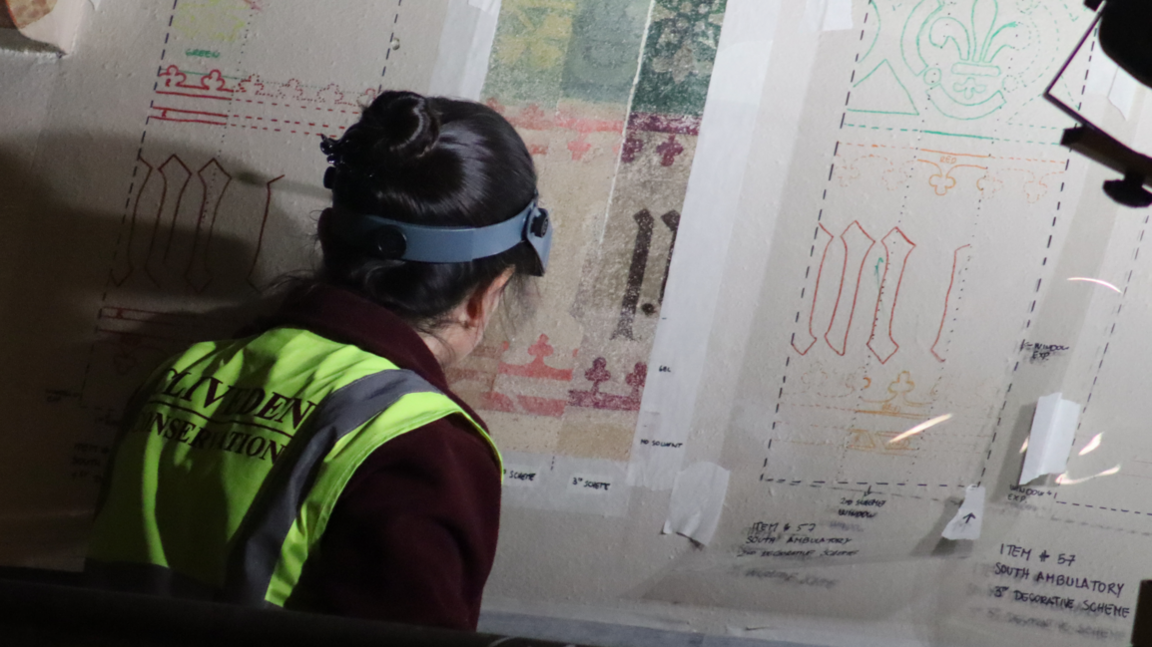
Conservators have painstakingly worked on 60 different parts of the walls and ceilings
Project manager Jane Hellings said: "Our conservators have completed six months' of meticulous work on 60 'windows' or squares, scraping away layers of paint.
"It has uncovered many of the original designs by Pugin."
They were covered with white paint in the 1960s. Elaborately decorated roof beams and trusses had also been painted to look like wood.
The initial exploratory work has been carried out in three chapels in the eastern end of the Grade II-listed building, off Derby Road, Nottingham, also known as the Cathedral Church of St Barnabas.
Ms Hellings said: "The next step is to work out what to fully restore and what to leave."
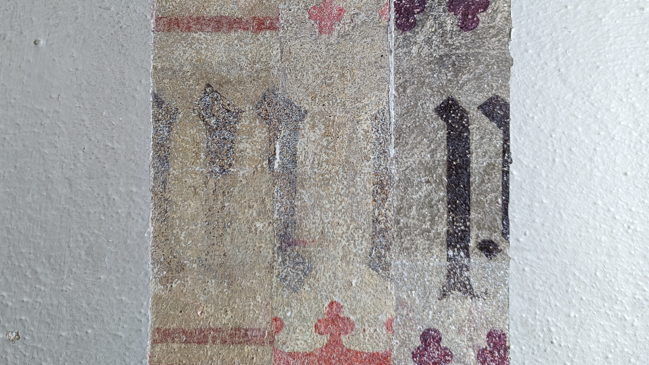
Removing white paint applied in the 1960s has uncovered original designs
Officials will spend the next year finalising their bid for more than £500,000 from the Lottery Heritage Fund to complete the restoration.
That application is due to be submitted in November with a decision expected by the end of March 2025. The work will then take a further year to complete.
In the meantime, repairs will be carried out on the roof of the cathedral.
It follows investigations by Nottingham Trent University which used digital sensors to monitor the temperature and humidity in the building.
Ms Hellings said: "This has really helped us understand what is going on. Damp has been an issue."
Follow BBC Nottingham on Facebook, external, on X, external, or on Instagram, external. Send your story ideas to eastmidsnews@bbc.co.uk, external or via WhatsApp, external on 0808 100 2210.
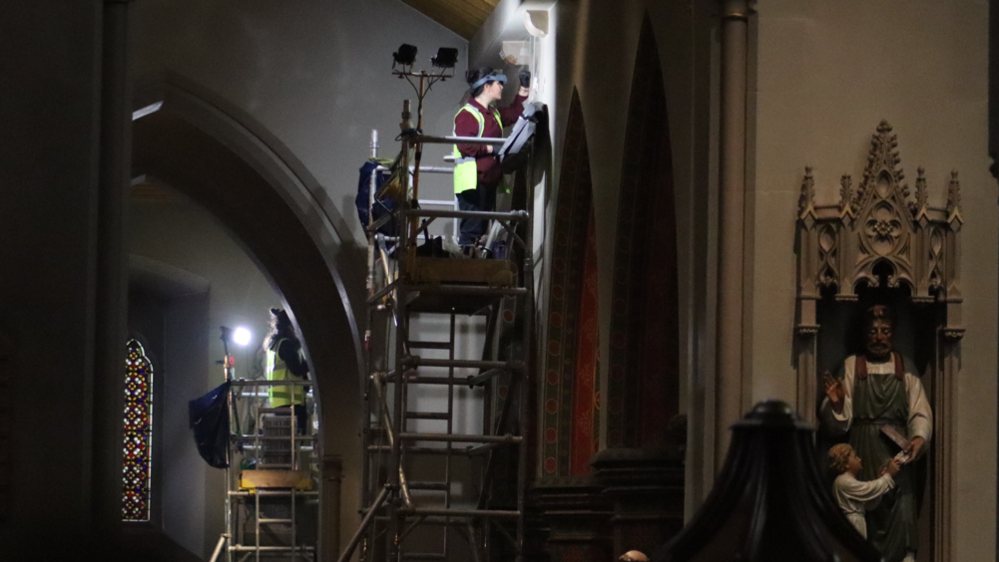
The work has been carried out in three chapels within Nottingham Cathedral
Related topics
- Published2 October 2022
